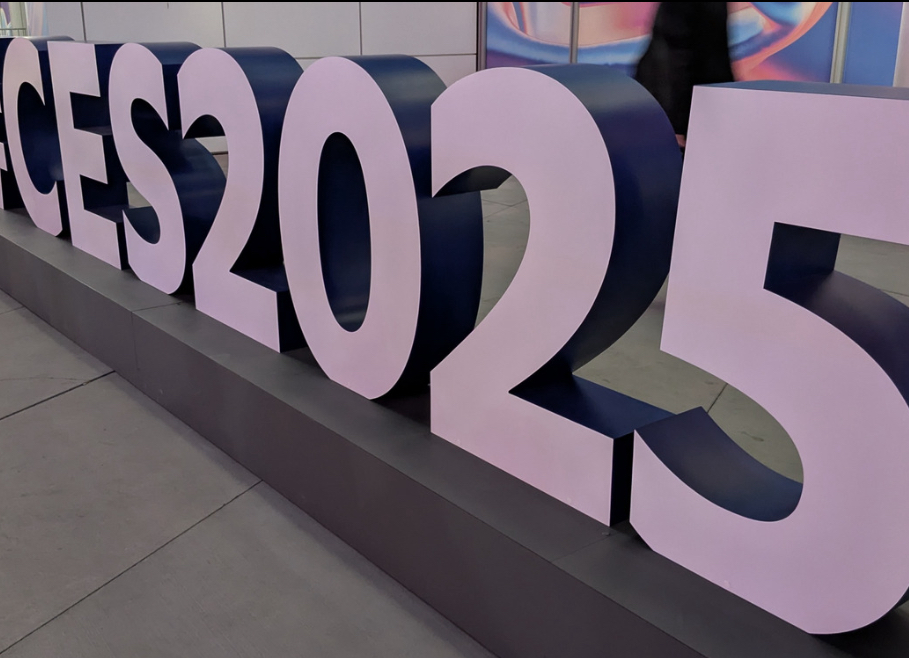
The Consumer Electronics Show (CES) 2025 in Las Vegas has wrapped up, leaving us with a wealth of groundbreaking innovations and insights. This year’s event was a testament to the ever-accelerating pace of technological advancement, offering a glimpse into the trends that will dominate 2025 and beyond. From artificial intelligence (AI) permeating every corner of the tech industry to revolutionary advancements in chipmaking and automotive technologies, CES 2025 set the tone for what promises to be a transformative year in tech. Here are the top three takeaways from this year’s CES:
1. AI Everywhere: Revolutionizing Every Sector
Artificial intelligence was the undisputed star of CES 2025. It was evident from the moment Nvidia’s CEO, Jensen Huang, took the stage for the opening keynote. AI’s presence was not just pervasive; it was transformative, reshaping industries ranging from consumer electronics to healthcare, entertainment, and beyond.
Generative AI and Agentic AI Take Center Stage
Generative AI was one of the most highlighted advancements, with companies showcasing applications that ranged from personalized content creation to advanced customer support systems. Google announced new generative AI features for TV apps, enabling smarter, more intuitive user experiences. Meanwhile, a newer concept, Agentic AI, made waves at the event. Unlike traditional AI models, Agentic AI is designed to control multiple foundational models, streamlining complex workflows and cutting down on mundane tasks.
This innovation promises to redefine productivity, with applications in enterprise software, creative tools, and even personal digital assistants. Companies like LG and Samsung also emphasized their AI initiatives. LG introduced “affectionate intelligence,” an approach aimed at creating emotionally responsive smart appliances, while Samsung launched its “AI for All” campaign, emphasizing accessibility and integration.
Robots on the Horizon
Robotics firms showcased the potential of AI-powered humanoid bots and autonomous systems. These ranged from robots capable of retrieving items from shelves to those that could shake hands and mimic human-like interactions. While robots are not yet part of everyday life, CES 2025 underscored their growing potential in industries like retail, hospitality, and eldercare.
AI-Driven Wearables and Smart Devices
Smart glasses and other wearable technologies saw significant upgrades powered by AI. These devices now offer enhanced real-time translation, augmented reality capabilities, and even health monitoring features. Lawn care enthusiasts were also treated to AI-driven intelligent lawnmowers, demonstrating how AI is transforming even the most unexpected niches.
2. Next-Gen Chips: The Backbone of AI Innovation
The advancements in AI were made possible by the cutting-edge innovations in semiconductor technology showcased at CES 2025. Chipmakers like Nvidia, AMD, Intel, and Qualcomm unveiled their latest processors, each pushing the boundaries of what’s possible in computing.
Nvidia’s Superchips and RTX 50 Series
Nvidia set the stage with the announcement of its GB10 superchip, a scaled-down version of its GB200 server-grade chip. Designed for AI workloads, the GB10 offers unprecedented performance for enterprise applications while maintaining energy efficiency. On the consumer front, Nvidia introduced the RTX 50 series graphics cards, tailored for gaming and creative professionals. These GPUs promise to revolutionize real-time rendering, AI-driven enhancements, and immersive gaming experiences.
AMD’s AI-Driven Processors
AMD made headlines with its Ryzen AI Max chips, designed for high-performance gaming laptops. These chips integrate AI accelerators to boost efficiency in tasks like adaptive graphics rendering and intelligent resource management. AMD also unveiled its AI 300 and AI 300 Pro Series chips, aimed at making AI applications more accessible to both consumers and enterprises.
Intel and Qualcomm’s Strategic Moves
Intel showcased its Core Ultra 200V processors, tailored for enterprise systems and gaming PCs. Qualcomm, meanwhile, made a significant entry into the mid-range laptop market with its Snapdragon X chip, which promises to bring AI capabilities to a broader audience. These developments highlight how AI optimization is becoming a central focus for chipmakers, ensuring that even mainstream devices can handle increasingly sophisticated AI workloads.
3. The AI-Infused Automotive Revolution
The automotive industry made a strong showing at CES 2025, with automakers and tech companies alike unveiling their latest advancements. AI is now at the core of automotive innovation, driving developments in autonomous driving, driver assistance systems, and sustainable transportation.
Honda and Toyota Lead the Charge
Honda debuted its 0 Saloon and 0 SUV, vehicles designed with AI-powered driver assistance and seamless connectivity. Toyota, leveraging Nvidia’s technology, showcased advancements in its driver assistance systems, signaling a future where AI enhances safety and convenience on the road.
The Rise of Robotaxis
Amazon-backed Zoox made headlines by offering test rides of its self-driving robotaxi around the Las Vegas Strip. These autonomous vehicles are designed for urban environments, promising safer and more efficient transportation options. The successful demonstration of Zoox’s robotaxi highlighted the feasibility of AI-driven public transport in the near future.
Sustainability Meets Innovation
CES 2025 also underscored the automotive industry’s commitment to sustainability. From electric vehicles with extended ranges to AI-powered energy management systems, companies are integrating green technologies to meet the growing demand for eco-friendly transportation solutions.
The Road Ahead: What CES 2025 Tells Us About the Future
CES 2025 was more than just a showcase of new gadgets and technologies; it was a roadmap for the future of innovation. Here’s what we can expect based on the trends highlighted at this year’s event:
•AI Will Continue to Dominate: From generative and Agentic AI to autonomous robots, AI will be the defining technology of 2025. Expect to see even more integration across industries, from healthcare and finance to retail and education.
•Chip Technology Will Drive Progress: The advancements in semiconductor technology unveiled at CES will be the foundation for future innovations, enabling faster, smarter, and more energy-efficient devices.
•The Automotive Industry Will Transform: AI-driven advancements in automotive technology will redefine transportation, making it safer, more sustainable, and more accessible.
CES 2025 has set the stage for a year of groundbreaking innovation, with AI leading the charge. Whether it’s in the form of a smarter TV, a more powerful gaming chip, or a self-driving car, the technologies showcased at CES are poised to shape the way we live, work, and play in the years to come. The future is here, and it’s powered by AI.
No comments yet.








